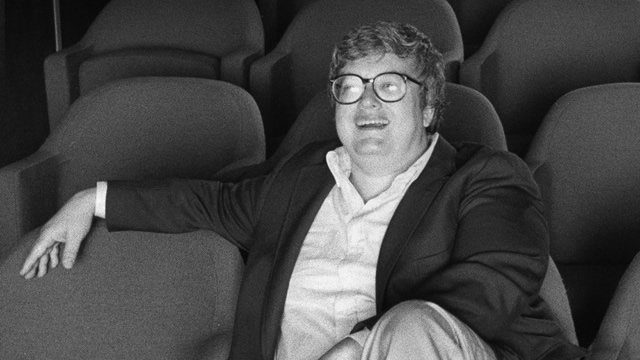At The Movies.
Directed by Steve James, Life Itself celebrates the life of Roger Ebert, a renowned film critic for the Chicago Sun-Times and one half of the television show Ebert & Siskel & The Movies (and the many other title variations). Ebert began his career as a film critic in Chicago in the 1960s, and reviewed thousands – around six thousand, he speculates – of films until he conceded defeat against his battle with cancer in April 2013.
Roger Ebert’s name will remain transfixed in cinema history. This won’t be for his one-time scriptwriting venture that resulted in Russ Meyer’s exploitation film Beyond the Valley of the Dolls. Rather, he will be remembered for his ability to write about cinema in a compelling, honest and non-discriminate way that portrays not only the films themselves, but also the time they were made in. It was the way Ebert’s reviews intertwined a mixture of film history, film appreciation, personal anecdotes and his own brilliance that has helped to define him as one of the most influential film critics of all time.
As the film opens, we hear Ebert encapsulate movies as a machine that generates empathy, a characteristic of cinema that isn’t lost on this documentary. Borrowing passages from his 2011 memoir of the same name, Life Itself tells the story of a man that battled with alcoholism and, at times, his own arrogance. His arrogance was evident in his relationship with costar of Siskel & Ebert, Gene Siskel, as they argued about fickle things like whose name should be said first. The two were known for their onscreen rivalry that, as we see in outtakes, was not just an act for the audience. But in the cracks of the rivalry, the two shared a deep affection for each other.
Life Itself is indeed a love story of sorts: between Roger and the movies, between Roger and Gene, and between Roger and his now-widow, Chaz. Chaz Ebert is the woman responsible for allowing Roger to find love, to be loved, to share his life with, and to shed some of the arrogance in order to reveal the humble man beneath. The footage shown, comprising of clips with Gene Siskel, snippets from his memoir, interviews with old friends, filmmakers and fellow film critics, depicts an honest man with a passion and tenacity that was evident in all of his work. Roger’s influence was far-reaching, not only to us as cinemagoers, but also to directors like Martin Scorsese; while he applauded some of their films, he was not afraid to tear down those he didn’t care for.
Life Itself shows intimate footage of Roger in hospital in the months leading up to his passing. Despite his eventual inability to speak, his screen presence never seemed more sincere. Always an honest man, Roger does not conceal his struggles with his illness while in front of the camera. Roger knows the tool well – the movie as a machine that generates empathy – and inviting the camera into his hospital room means that we are able to understand his battle with cancer, his daily struggles, and to identify with him in his final act. As he becomes more and more aware of his mortality, it beckons us to recognise our own.
Roger Ebert spent his professional career celebrating movies, spending almost half a century sharing his honest thoughts on film and, well, life itself. Here is the film that celebrates his life – and much like most reviews Roger has ever written, it does not disappoint. Life Itself is a touching, entertaining, andi ntimate piece of cinema about a man who devoted his life to the medium.
I give it two thumbs up.
For more Reviews, click here. If you’re digging ReelGood, sign up to our mailing list for exclusive content, early reviews and chances to win big!

